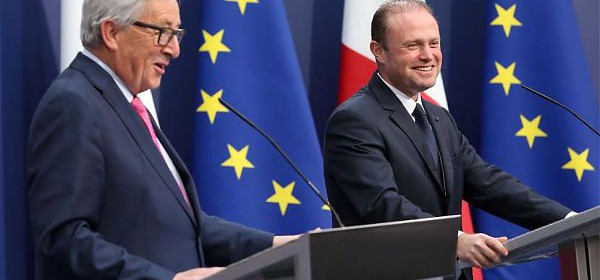MALTA'S PRIORITIES FOR EU PRESIDENCY

The official opening of the Maltese Presidency will take place at the Mediterranean Conference Centre during which Jean-Claude Juncker, Joseph Muscat and the President of the Council Donald Task will deliver speeches followed by a themed dance focusing on the tragedy of the problem of migration.
As a matter of fact the theme of migration will be the centre of all the priority themes on the Maltese agenda as the government has declared that it will be working on a holistic approach involving all countries. Furthermore Malta aspires towards an improved and simplified European System for asylum seekers and an enhanced relocation programme in the European countries.
Another priority will focus on the European Union common market which will see Malta driving forces to develop a common digital market. The government will also be pushing to reach a final decision regarding the removal of roaming tariffs in the European Union countries and to strengthen consumer rights when purchasing over the internet.
Apart from this the government’s political programme includes an internal market for energy. Moreover a revision of the current efficiency package will be implemented in order for residential buildings to decrease energy consumption and to improve energy efficiency in the industrial sector.
In the light of the recent Berlin terror attacks, the subject of security will additionally form part of the priorities as citizens across Europe feel threatened and frightened and demand to be adequately protected against this uprising menace that has hit a number of countries in the past few years.
Other priorities comprise of social inclusion, the need for the European institutions to be closer to its citizens thus ensuring its relevance, the neighbouring policy focusing on the Mediterranean region and maritime affairs.
Since this is the first time that Malta has been entrusted with the Presidency from the time when it joined the EU in 2004, the country is in an advantageous position to influence the current agenda during the various ministerial meetings of the European block taking place during these six months.
Facing a major difficulty is indeed the timing of the Maltese Presidency as it coincides with the commencement of the procedures of the United Kingdom to leave the European Union following the Brexit referendum result.
Other challenges are the Euro common currency, the surge in populism against the political establishment in a number of European countries. Both the Netherlands and France will be holding their respective elections during the first part of 2017 with the right for the electorate to choose its new administration. With the recent win for Donald Trump as President of the United States, there exists an underlying trepidation across European countries that the populist ideology might be growing.
(ITALPRESS/MNA).
Photo credit: Department of Information Malta
Source: medNews

